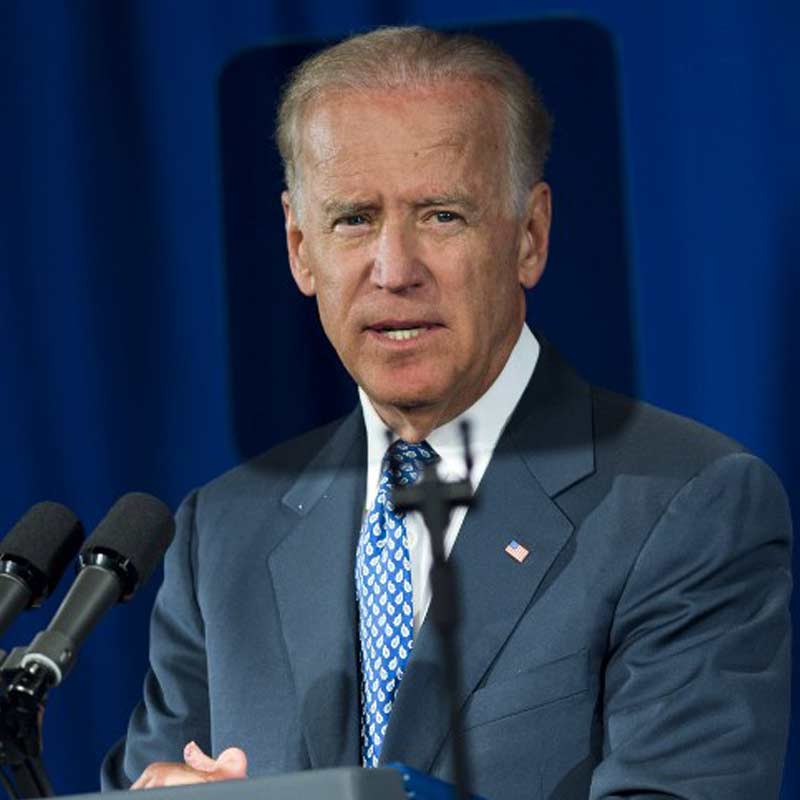
Joe Biden will embark on his maiden visit to India as US Vice President on Monday to discuss key bilateral issues, including trade, energy and defence, to make Indo-US ties the most important strategic partnership of the 21st century.
During his four-day-long stay in India, Biden will hold meetings with top Indian leadership, including President Pranab Mukherjee and Prime Minister Manmohan Singh.
Biden, accompanied by his wife Jill would arrive in New Delhi on July 22, would focus on four key issues of economic and trade ties, energy and climate change; defense co-operation and a wide range of regional co-operation.
Biden, 70, had visited New Delhi in 2008 as a Senator.
He will also hold talks with Vice President Hamid Ansari and the Leader of Opposition Sushma Swaraj.
Biden, who wanted to travel to India in the first term itself, would begin his trip with a visit to the Gandhi Smriti Museum to show his respect to the Father of the Nation.
All his meetings have been scheduled for July 23, at the end of which he would attend a dinner hosted in his honour by Ansari.
Biden would spend the next two days – July 24 and 25 -- in Mumbai, where he would meet the business leaders at a round table and deliver a policy speech at the Bombay Stock Exchange.
He is expected to set up an "ambitious vision" for India- US relationship, in addition to the a women's empowerment event at IIT Mumbai.
He would leave for Singapore on July 25.
All this while, Jill would hold a series of health and nutritional events in New Delhi and Mumbai and visit the Taj Mahal in Agra.
Biden, however, would not be visiting the Taj Mahal.
"One of the reasons why President (Barack) Obama called our relations with India, quote, 'a defining partnership of the century ahead' is that India is increasingly looking east as a force for security and growth in Southeast Asia and beyond," Biden told an audience at the prestigious George Washington University here on Friday.
"India is obviously a key player and increasingly so in the Asia Pacific region. The United States and India have an increasingly bilateral relationship as our countries grow and deepen ties incredibly in broad range of areas," a senior Obama administration official told reporters during a conference call.
Four areas in particular would be at the top of the agenda of the visit of the Vice President, he said.
"The first would be of economic cooperation, where the Vice President would focus on issues of investment policies to intellectual property and speak to how we can work together to close the gap between where we are today and where we can be in our bilateral trade and investment and in our cooperations in multi-lateral trade investment forum," the official said.
In the second area of energy and climate, the official said Biden would speak to the work that the two countries need to do together to realise the promise of the civil nuclear agreement and the work that the two nations should be doing together to be leaders on addressing global challenge on climate change.
Identifying defence co-operation as the third area, the official said the US and India have built a strong foundation in this over the past few years.
"The Vice President would come to talk together, how we can come together to build even stronger and deeper co-operation going forward," he said.
The wide range of regional co-operation that the United States and India has embarked upon both in South Asia and East Asia relating to maritime security to counter terrorism would be the fourth area of focus of Biden's trip, he said.
In his policy speeches in Mumbai, Biden is expected to set out an "ambitious vision" for India US relationship.
"On the issue of defence and security, and regional co-operation I think he would point out that increasingly United States and India are coming into strategic convergence in terms of what our key interests are and how we can pursue them, related to maritime security and freedom of navigation, related to issues of stability to create regional integration and growth," the official said.
"It will be a speech geared not towards policy makers or government officials, but to the people of India," the senior administration official said.





0 comments:
Post a Comment